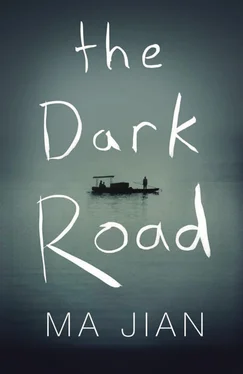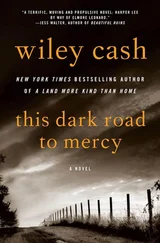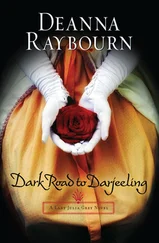‘We’ll fine you and confiscate your goods,’ the middle-aged officer says. ‘Count yourself lucky. If you dare sell fake products again we’ll revoke your licence.’
Meili’s heart sinks as she watches the eleven crates of milk powder being dragged out of her shop and loaded onto the van. That’s a thousand yuan lost for ever.
One of the officers notices Meili’s round belly and says to his colleague, ‘This place really is a heaven for family planning fugitives!’ in a local dialect he mistakenly presumes Meili doesn’t understand.
Passers-by gather outside the shop and mutter among themselves: ‘We can’t trust anything we eat these days! Tofu fermented in sewage, soy sauce made from human hair, mushrooms bleached with chlorine, and now fake baby formula! Whatever next?… Apparently, after just three days on that powder, babies lose weight and develop “big head disease”… I heard that thirteen babies have died already from kidney stones… Those evil peasants who make this stuff — have they no conscience?…’
Meili looks down, aghast, at the 5,000-yuan fine the officers handed to her. She considers phoning Kongzi, but is afraid he’ll blow his top, so she phones Tang instead and asks him to come over straight away.
‘I want to throw myself in the lake,’ she sobs as Tang walks in.
‘This fake milk powder has been in the news a lot recently. The government announced that there would be a national crackdown. Hundreds of infants have developed swollen heads, apparently, and a few have already died. One manufacturer raised the protein levels in the powder by adding ground leather from old shoes and boots. Can you believe it?’
‘Why didn’t you warn me?’ Meili says, feeling stupid and incompetent.
‘I had no idea you sold fake goods.’
‘But everything in Heaven is fake! Those Clarks shoes you’re wearing are as fake as the baby Nike trainers on that shelf. That teddy bear with the Made in France label, that American dummy, that Hong Kong baby-walker, even the President Clinton autobiography I’ve put in the front window — they’re all pirated, copied, fake, made in Shenzhen… I have a sack of foreign designer labels which I can stick on any product I want. If I didn’t sell fake goods, how could the government expect me to pay all the fees they charge? Just take a look at these!’ She opens a drawer stuffed with bills. ‘Urban infrastructure improvement fee, private leaseholders’ public security administration fee, migrant worker integration fee, public security joint defence fee, children’s products company administrative fee, fire prevention fee—’
‘All right, I understand,’ Tang says. ‘Come on, let me invite you to lunch. It’ll help you take your mind off things.’
The Hunan restaurant he takes her to is a five-minute walk away. By noon the place is packed, and filled with the noise of clanking crockery, loud television and animated chatter. Meili takes a small bite of the taro croquette she ordered, then carefully dabs her mouth with her napkin to stop her lipstick staining the food.
‘I have something important to tell you, Meili,’ he says. ‘I want to set up a business selling second-hand computer components. Would you be my general manager? The salary will be low to start with, but I’ll give you a percentage of the profits and shares in the company.’
‘Yes, I’d love to! But what about my shop, and your family’s business?’
‘You can find someone to run the shop for you. And I’ve had enough of working for my family. I need to strike out on my own, be my own boss. I’ve researched the computer trade. Dealers from Beijing are already travelling down here to buy used components. There’s a big demand for CD drives and motherboards from repair shops up there. An old classmate of mine has set up a similar company in Guangzhou. We can start by supplying him first, then gradually expand nationwide.’
‘Have you thought of selling second-hand televisions as well? I bought one for two hundred yuan the other day. It’s been cleaned and repaired, and works perfectly. A similar model would cost five thousand yuan new. If you sell cheap products like that to the poor, you could make a fortune. After all, most people in this country are peasants.’
‘We can think about that later. But first let’s come up with a name. How about Fangfang Electronics? No, that doesn’t work well in English.’
‘What about your English name, “Hugo”? In Chinese it sounds like “Virtuous Accomplishment”. Isn’t that good?’
‘Yes, Hugo Electronics it is then… Oh yes, I spoke to the headmaster of Red Flag Primary. He said he couldn’t allow Nannan to attend even if you bribed him. The county guidelines insist that all pupils have local residence permits. So she’ll just have to stay at that migrant school, I’m afraid.’
‘Well, she’s lucky to have a place there. It only takes fifty students but there are tens of thousands of migrant children in Heaven. And just think how many millions of other migrant children there are in this country who are being denied an education. It’s a national disgrace.’
‘Wait until I’m a member of the People’s Congress, and I’ll sort it out,’ Tang says, pouring himself some more tea.
‘You’ve studied abroad. You should go into education, not politics.’ As Meili bites into a chunk of the roast duck, Heaven kicks her stomach so hard that she almost blacks out. Mummy got into big trouble today, little one, she says under her breath. So be kind, and keep still…
‘I’ll go to the Bureau of Industry and Commerce this afternoon and see if I can get your fine reduced,’ Tang says. ‘The shop licence is in my name, after all. But don’t worry — however much it is, I’ll pay it.’
Meili smiles gratefully. ‘But it was my fault. I can’t let you—’
‘Ah, you look so pretty when you smile! You can thank me with a kiss.’ Tang closes his eyes and offers his cheek to her. Not wanting to bend over her belly, she gets up, walks round to him and places a kiss on his forehead. ‘You’re a good woman,’ he says, taking her hand. ‘If you get divorced, I’ll be the first in line to—’
‘And you’re a good man, Tang. Whoever does marry you will be a lucky woman. Perhaps you and I will get married in our next life.’ She pulls her hand away, returns to her seat and thinks how wonderful it would be to start her life again from scratch.
Tang picks up a piece of steamed pork with his chopsticks and places it in Meili’s mouth.
‘Do you know who gave me a second life?’ Meili says.
‘Me?’ Tang replies, his buck teeth glinting.
‘Well, of course, I wouldn’t be where I am today if it weren’t for you. So, let’s say you gave me a third life. But the person who gave me my second life was a graduate called Suya who I met in a Custody and Repatriation Centre. I was with her for only two weeks, but she changed the way I look at the world. She was unlike anyone I’d met before. Even the way she moved and held herself set her apart. Through her, I began to understand the qualities that distinguish one person from another.’
‘So what happened to her?’
‘We were transferred to a labour camp, and she disappeared just before I left. I sneaked her journal out with me and have kept it with me ever since. But I’ve no idea where she is now, or even if she’s still alive.’
‘Those custody centres are a scandal. The police trawl the cities rounding up peasants, slam them in detention, then sell them to village officials who force them to work on farms for no pay. It’s a modern-day slave trade… So, where was Suya from?’
‘Chengdu. But I don’t have her address. I feel as though my old self died in the camp and now Suya is living my life. I was never brave, strong or clever. I’m terrified that if something bad happens, I’ll fall apart, like I almost did in the shop just now, and return to who I was. I’d like to go to Chengdu and try to track Suya’s parents down. If they tell me she’s dead, at least it will give me peace of mind. But if they’ve had no news from her…’ Meili thinks of Weiwei searching the Xi River for his mother, and realises she hasn’t thought about him for a long time. She looks up and scans the faces of the other diners in the restaurant.
Читать дальше












